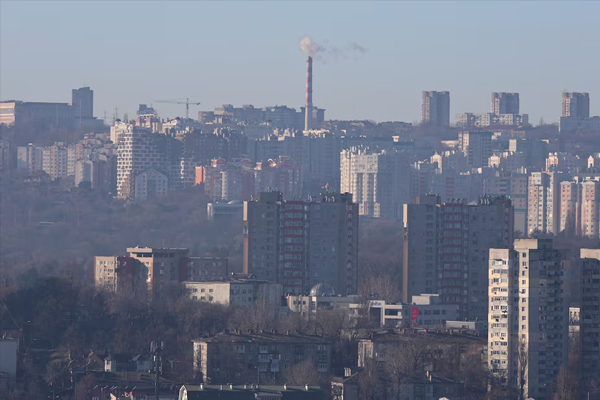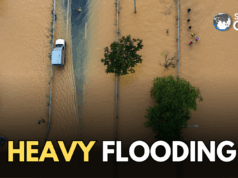
Moldova and its separatist Transdniestria region moved closer on Monday to finalising a deal to restore gas supplies to the rebel enclave, where residents have faced power and heating shortages since the beginning of the year.
Ukraine refused to renew an agreement allowing transit through its territory of supplies from gas giant Gazprom, for pro-Russian Transdniestria, as well as customers in Slovakia and Austria.
Transdniestria residents remained subjected on Monday to a five-hour rolling blackout and authorities said those in high-rise apartments had been without heating for nearly three weeks. They said gas reserves in the territory were sufficient for 11 days at current reduced levels of consumption.
Transdniestria’s separatist leader, Vadim Krasnoselsky, said his region had told Moldova’s pro-European authorities two days earlier that it was ready to agree to a deal to accept – and pay for – gas supplies provided by the Moldovagaz national company.
Moldova-Gazprom Dispute Intensifies
Moldova blames Moscow for the crisis and has urged Gazprom to send gas by alternative routes, including pipelines running through Turkey, Bulgaria and Romania. Gazprom says it will send no gas to Moldova pending payment of arrears it estimates at $709 million, a figure disputed by Moldova’s central government.
“Today is already 20th January and we have no reply. I ask you to stop politicising this issue and think about people,” Krasnoselsky said during a meeting of local officials.
He called for action “in the interests of people freezing in their apartments, the interests of social institutions and of enterprises that are idle due to lack of gas supply”.
Private Gas Supply Proposal
Krasnoselsky proposed having the gas supplied to Moldova’s border by an independent, private gas company and the Moldovan government’s press secretary, Daniel Voda, said officials were considering the proposal.
Igor Ananskikh, a member of the Russian parliament’s State Duma lower house, said he believed Russia would help finance gas supplies if an agreement could be reached.
“I think with the help of the Russian Federation these supplies will be paid for in the end,” Ananskikh, a member of the Duma’s Energy Committee, said in comments reported by Moldovan media.
Transdniestria, Ananskikh said, had “no options”.
‘Humanitarian Gas’
Transdniestria, supported by Moscow after breaking away from Moldova at the end of the Soviet era, had long received Russian gas through Ukraine free of charge. Krasnoselsky describes the supplies as “humanitarian gas”.
Moldovan President Maia Sandu, who has spearheaded the ex-Soviet state’s campaign to join the European Union, offered at the weekend to provide financial help for Transdniestria.
But she said any such arrangement was possible only after the withdrawal from Moldova of 1,500 Russian “peacekeeping” troops deployed since a brief 1992 war between Trandniestrian separatists and the newly independent Moldovan state.
(With inputs from Reuters)




